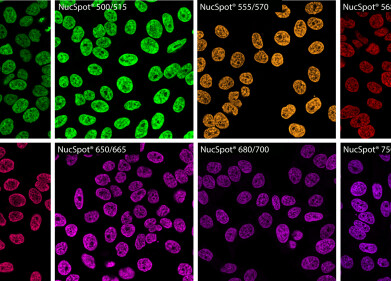Microscopy & Microtechniques
How Often Should You Wash Your Hands?
Nov 09 2020
If there’s one thing the COVID-19 pandemic has taught the world, it’s the importance of hand hygiene. Flagged by the World Health Organisation (WHO) as one of the easiest and most effective ways to stop the spread of the highly infectious disease, handwashing with soap and hot water banishes viral particles from the hands and prevents them from infiltrating the body through the nose or mouth. So how many times a day should you be washing your hands? According to experts, aiming for six to 10 washes a day can make a big difference when it comes to keeping viruses and bacteria at bay.
Want to know more about why handwashing is such an effective way to stop the spread of infectious diseases such as COVID-19? Here are some of the ways pathogens can spread from the hands to the body, as outlined by the US Centre for Disease Control and Prevention (CDC).
- Touching the eyes, nose, and mouth
- Preparing food with dirty hands
- Shaking hands
- Touching contaminated objects or surfaces
- Sneezing or coughing into the hands
How handwashing works
While liquid alcohols, gels, creams and sprays are an effective way to kill bacteria, experts maintain nothing is quite as powerful as hot water and soap. This is because viruses, including SARS-CoV-2, are self-assembled nanoparticles encased within a fatty lipid bilayer. Soap is one of the most effective ways to dissolve this protective fat membrane and deactivate the virus. It does this by using two molecules, one that binds to fat and another to water. When the molecules come into contact with fat and water, they pull apart the fatty lipid bilayer. This exposes the building blocks of the virus and stops it from replicating using lipids, proteins and RNA. Once deactivated, the virus is literally washed away.
Frequent handwashing reduces COVID-19 contraction risk by 36%
A recent study from the University College London (UCL) confirmed the importance of handwashing, with results suggesting people that wash their hands between six to 10 times a day are 36% less likely to contract COVID-19. "Given that COVID-19 appears to demonstrate similar transmission mechanisms to seasonal coronaviruses, these findings support clear public health messaging around the protective effects of handwashing during the pandemic," says first author of the study Sarah Beale.
While handwashing is a relatively simple science, other breakthroughs are far more complex. Find out more about the latest cutting-edge advances in ‘Micropatterning: The art of micro-controlling cells.
Digital Edition
Lab Asia 31.6 Dec 2024
December 2024
Chromatography Articles - Sustainable chromatography: Embracing software for greener methods Mass Spectrometry & Spectroscopy Articles - Solving industry challenges for phosphorus containi...
View all digital editions
Events
Jan 22 2025 Tokyo, Japan
Jan 22 2025 Birmingham, UK
Jan 25 2025 San Diego, CA, USA
Jan 27 2025 Dubai, UAE
Jan 29 2025 Tokyo, Japan



















